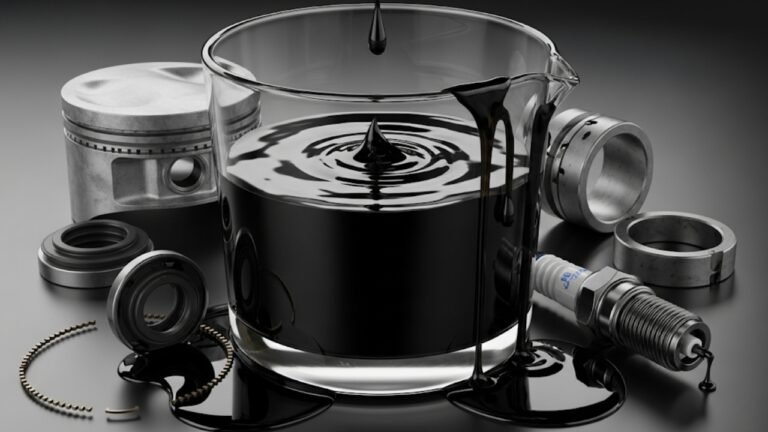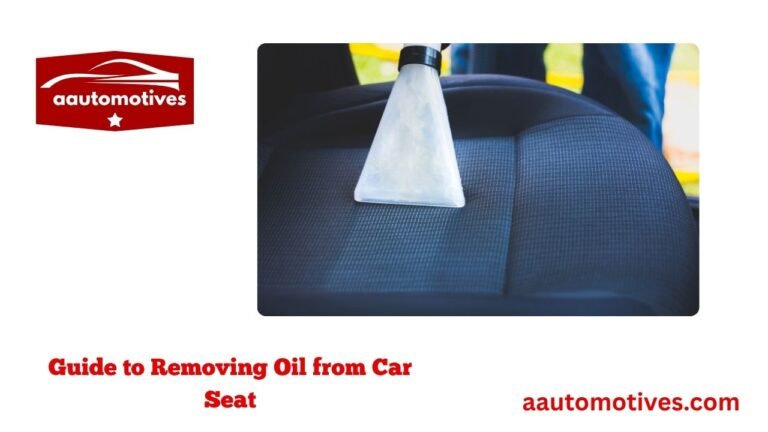Oil Change for New Car

Getting a new car is exciting. It smells new, drives smooth, and makes you feel like you’re on top of the world. But with all that joy comes a bit of responsibility, too. One of the first things most people wonder is, “When should I get the oil change for new car?” It’s a simple question but comes with mixed answers. Some folks say wait longer because today’s engines are built tougher. Others swear by changing it early to protect the engine.
Truth is, your new car’s engine is like a newborn baby—it needs care, attention, and proper feeding. The “feeding” here is engine oil. Not changing it in time could lead to long-term wear and tear. And with cars becoming more complex each year, knowing when and how to change the oil matters more than ever.
Let’s break this down in a friendly, honest way. No jargon, no fluff—just facts and real-world advice to keep your car running smoothly.
When Should You Get the First Oil Change for a New Car?

It’s one of the first questions that pops into your mind after buying a new car. The dealership may tell you to wait until 10,000 miles. Your uncle might insist you do it at 1,000 miles. So, who’s right?
Well, it depends on your car’s engine type and how you drive. Most modern cars use synthetic oil, which lasts longer. But during the break-in period—usually the first 500 to 1,000 miles—the engine components are settling in. This process can cause microscopic metal particles to end up in the oil. That’s why an early oil change for new car is often a smart move.
You wouldn’t skip your baby’s first health checkup, right? Think of this as the same kind of maintenance. A good rule of thumb is to check your owner’s manual, but doing your first oil change at 1,000 to 2,000 miles shows extra love for your car.
Here’s a quick guide based on common car types:
| Car Type | Suggested First Oil Change |
|---|---|
| Regular gas engine | 1,500–2,000 miles |
| Turbocharged engine | 1,000–1,500 miles |
| Diesel engine | 2,000 miles |
| Performance cars | 1,000 miles |
Why Oil Changes Are Crucial, Even for a Brand-New Car
Some drivers assume that a new car doesn’t need any maintenance for months. That’s like saying you don’t need to wash your dishes after using them just once. Engine oil plays a bigger role than you might think. It’s not just there to lubricate—it cools, cleans, and protects the engine.
Think of engine oil as blood in your veins. If it gets dirty or low, things start to go wrong. In a new car, leftover debris from the manufacturing process can mix into the oil. That grit can cause more friction than you want during those first few thousand miles.
If you delay your first oil change, that debris keeps circulating. Over time, it may scratch or clog tiny engine parts. That’s like sandpaper rubbing against skin. It won’t break down the engine immediately, but it adds up—and not in a good way.
Changing your oil early is an investment. It’s like flossing for your car. You don’t see the results right away, but your car’s “health” will thank you down the line.
What Type of Oil Should You Use for Your New Car?
Let’s get real—standing in front of shelves filled with oil bottles is overwhelming. Synthetic, semi-synthetic, high-mileage, conventional… what does it all mean?
For a new car, the safest bet is usually full synthetic oil. It flows better, lasts longer, and holds up against heat like a champ. It’s a bit pricier than conventional oil, but think of it as buying better shoes. Sure, cheap ones might get you down the block, but good ones last longer and feel better every step of the way.
You should always go with the manufacturer’s recommendation. The owner’s manual will tell you the right oil viscosity (like 0W-20 or 5W-30). Stick to it. It’s not a suggestion—it’s a rule.
Here are some basic oil types and when they’re best used:
-
Full Synthetic: Ideal for new cars, especially performance engines
-
Synthetic Blend: Cheaper but still good; better for older engines
-
Conventional: Budget-friendly, not ideal for most new engines
-
High-Mileage: For cars over 75,000 miles—not your concern yet
If you want the best for your baby-on-wheels, go full synthetic. Your engine will stay clean and protected, even if you’re stuck in traffic on a hot day.
Signs Your New Car Might Need an Early Oil Change
Even if your car is new, there are signals that you shouldn’t ignore. The check engine light or oil warning light are obvious signs. But others are more subtle. You might feel the car running a little rough or hear a ticking sound when starting it.
Here’s a quick checklist to help you catch it early:
-
Engine feels louder than normal
-
Rough idling or hesitation when accelerating
-
Dark or dirty-looking oil on the dipstick
-
Noticeable drop in fuel economy
-
Burning smell under the hood
Paying attention to these can save you a lot of trouble. Remember, it’s better to be safe than sorry. A quick oil change for new car might fix issues before they become expensive repairs.
How Often Should You Change the Oil in a New Car After the First Time?
Once you’ve done the first oil change, you might wonder about the schedule from there on out. Again, it depends on your driving habits and oil type.
With synthetic oil, most new cars can go 7,500 to 10,000 miles between oil changes. That said, if you do a lot of city driving, stop-and-go traffic, or towing, you should change it more often.
Here’s a simple rule to follow: check your oil every 1,000 miles. Not change—just check. It takes two minutes and helps you catch leaks or dirtiness early.
Here’s a simplified post-break-in oil schedule:
| Driving Style | Oil Change Frequency |
|---|---|
| Normal (highway) | Every 7,500–10,000 miles |
| Moderate (mixed use) | Every 5,000–7,500 miles |
| Heavy (city or towing) | Every 3,000–5,000 miles |
By staying consistent with oil changes, you’re not just extending your engine’s life. You’re also protecting your car’s resale value. Buyers love maintenance records, especially when they see regular oil changes from day one.
Top Tips to Make the First Oil Change Easy and Stress-Free
If this is your first time handling car maintenance, don’t sweat it. You don’t need to be a mechanic to make smart decisions. Here are some tips that make it easier:
-
Stick to one mechanic or dealership for records and consistency
-
Use manufacturer-approved oil and filters
-
Keep all your receipts (they help with warranty claims)
-
Ask for a multi-point inspection when you go in for oil change
-
Check the oil level monthly, even between changes
It’s okay to feel nervous the first time. But once you do it, you’ll feel more confident. And your car? It’ll reward you with smoother drives and fewer surprises.
Can You Do the First Oil Change Yourself?
Absolutely. If you’re the kind of person who likes rolling up your sleeves and saving some cash, changing the oil yourself is not as scary as it sounds. But when it comes to a new car, there are a few things to watch out for.
First, make sure doing it yourself won’t void your warranty. Most warranties are okay with DIY oil changes—as long as you follow the instructions in the manual and keep proof. That means saving receipts for the oil and filter, and writing down the date and mileage. Think of it like keeping a medical record for your car.
You’ll need:
-
The right type and amount of engine oil
-
A new oil filter
-
A wrench, funnel, and an oil drain pan
-
A safe place to work—flat surface and good lighting
Doing it yourself can save money and make you feel more connected to your car. But if you’re unsure or uncomfortable, don’t risk it. A quick visit to the mechanic might be the better choice, especially if you’re under warranty or lease.
How an Early Oil Change Can Boost Long-Term Engine Life
This might sound dramatic, but the first oil change can set the tone for your car’s whole life. That thin film of oil is all that separates fast-moving metal parts in the engine. If that oil is contaminated or broken down early, it can lead to tiny scratches, sludge buildup, and even poor fuel efficiency.
Let’s imagine your engine like a finely tuned orchestra. If one instrument plays off-key, the whole performance suffers. Clean oil ensures every part—like pistons, valves, and bearings—stays in perfect harmony. Over time, this means:
-
Less wear and tear
-
Lower repair costs
-
Better gas mileage
-
Longer engine lifespan
Most mechanics agree that a precautionary oil change early on is cheap insurance. You’re spending a little now to avoid big expenses later. It’s like brushing your teeth—not exciting, but absolutely worth it.
My Personal Experience: Why I Always Change Oil Early in a New Car
When I bought my first new car, a compact hatchback with a shiny blue finish, I felt like I’d joined a secret club. I wanted to treat that car like royalty. A friend—a retired mechanic—told me, “Change the oil at 1,000 miles. Trust me.”
I followed his advice. When the mechanic drained the oil, it looked darker than I expected. There were tiny metal specks in it. Nothing dangerous, but still—proof that early wear was real. I felt proud I’d acted early.
That car served me for 11 years, over 180,000 miles, and not once did I deal with engine issues. Since then, I’ve repeated the same process with every new car. It’s a small habit that gives me peace of mind, and honestly, it’s worth every penny.
Common Myths About Oil Change for New Car
There’s a lot of misinformation floating around. Let’s clear up a few myths:
Myth 1: New cars don’t need oil changes early
Wrong. Even high-tech engines have break-in periods. Tiny metal particles can still contaminate your oil.
Myth 2: Synthetic oil never needs changing
Also false. Synthetic lasts longer but still breaks down over time. You still need regular changes, just not as often.
Myth 3: The oil looks clean, so it must be fine
Not always. Clean-looking oil can still be worn out or lacking in key additives. Don’t trust color alone—check the manual and your odometer.
Myth 4: Dealerships exaggerate service needs
Sometimes, but not always. While they may upsell, early oil changes are a legitimate need—not a scam.
Sticking to the facts helps you avoid mistakes that could hurt your wallet—or your engine.
How Much Does the First Oil Change Cost?
For a new car, the first oil change usually costs between $50 and $100, depending on your location, car type, and whether you use synthetic oil. Some dealerships even offer the first one free as part of your warranty or service package.
Here’s a rough cost breakdown:
| Service Item | Average Cost |
|---|---|
| Full Synthetic Oil | $40–$70 |
| Oil Filter | $10–$20 |
| Labor (if applicable) | $20–$40 |
DIY? You’ll probably spend about $45 total. Go to a dealership? It might be closer to $100. Just remember: don’t skimp on oil quality. Saving a few bucks now could cost you thousands later.
Bullet Points: Quick Facts for Busy New Car Owners
-
Change oil early—1,000 to 2,000 miles is ideal
-
Use full synthetic oil for most modern cars
-
Stick to manufacturer specs for oil type and filter
-
Keep receipts and log mileage to protect warranty
-
Don’t rely on looks—check dipstick and mileage regularly
-
DIY is okay, but only if you’re confident and careful
-
Regular oil checks = longer engine life and better resale
FAQs About Oil Change for New Car
Do I really need to change the oil early in a new car?
Yes, especially during the break-in period. Early oil changes help remove contaminants and tiny metal particles from the engine.
What oil should I use for a new car?
Use the manufacturer-recommended oil, typically full synthetic with the right viscosity like 0W-20 or 5W-30.
Will I void my warranty if I skip the first oil change?
Possibly. Skipping maintenance can risk voiding warranty coverage, especially if engine damage is linked to neglect.
How can I tell if my new car needs an oil change?
Look for signs like rough idling, engine noise, or dirty oil. But mostly, just follow your maintenance schedule.
Can I use any oil filter?
No. Use only OEM or approved oil filters. Cheap or wrong filters can fail and damage your engine.
How long should I wait to change oil if I drive rarely?
Even with low mileage, change oil at least once every 6–12 months to keep it fresh and effective.
Can I switch oil brands after the first change?
Yes, but always match the specifications. Stick to high-quality brands to maintain performance.
Should I trust the dealership or go to a local mechanic?
Either is fine—as long as they follow manufacturer guidelines and use quality oil. Keep all service records.
Final Thoughts: Take Care of Your New Car from Day One
Your new car is more than just a machine—it’s a part of your daily life. Whether you’re driving to work, taking road trips, or picking up groceries, you rely on that engine every time you turn the key. A small thing like an oil change for new car might not seem like a big deal, but it sets the stage for years of reliable performance.
Think of your car like a relationship: take care of it, and it’ll take care of you. Start with that first oil change, keep it regular, and you’ll enjoy smoother drives, fewer repairs, and better resale value in the long run.
And remember, oil changes aren’t just routine—they’re a form of respect. Respect for your investment. Respect for your time. And most importantly, respect for your peace of mind.






